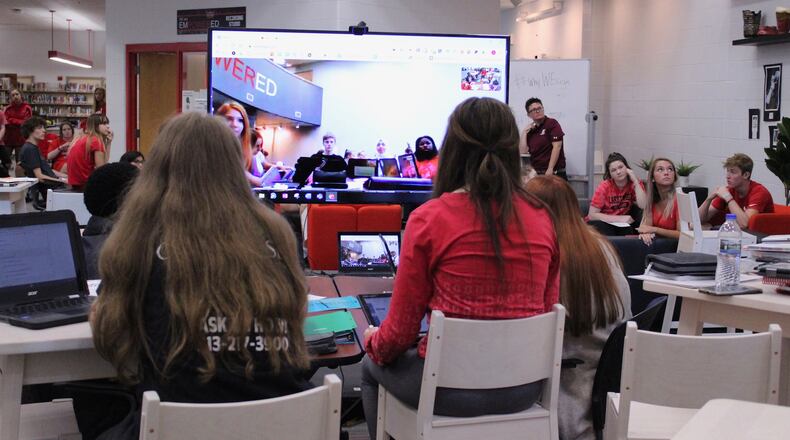Gov. Mike DeWine’s office said late Friday afternoon that DeWine does intend to sign the bill.
THURSDAY: House passes late-night bill calling for delay
A variety of changes tied to the voucher system – school report card metrics, legal tweaks and the end of a “safe harbor” period – would have meant tens of thousands more public school students would have been eligible for vouchers this fall. Many of those newly affected public schools received overall B’s or C’s on the state report card.
The Senate passed a detailed bill just before midnight Tuesday that would have decreased the number of voucher-eligible public schools, while increasing income-based vouchers for middle-class families.
The House rejected that bill Wednesday, and a conference committee aimed at resolving the chambers’ differences met to get started but quickly recessed and had not resumed work as of Friday afternoon.
The new amended bill now passed by both chambers appropriates an extra $10 million for 2020-21 to pay for “certain first-time, performance-based EdChoice scholarships,” according to a summary of the amendment.
EARLIER: Rushed process on school vouchers worries some
That may indicate the House is no longer leaning toward the entirely income-based voucher system that Speaker Larry Householder said he favored 24 hours earlier, and that Sen. Matt Huffman has advocated for in the past.
Multiple speakers on the Senate floor Friday expressed frustration with the delay and urged House members to get back to work in conference committee immediately.
Sen. Kenny Yuko, D-Richmond Heights, said his biggest fear is that the next 58 days will be in vain, and the legislature will be back in late March making two days of rushed decisions. Sen. Dave Burke, R-Marysville, suggested the governor call the House back into session before midnight Friday, because “the only time real issues get solved in here is when the hair is on fire.”
Huffman, an advocate of private-school vouchers, said the language of the bill might not stand up to a legal challenge if families fought to apply for vouchers starting Saturday. He said the “biggest tragedy” is that thousands of families who have used the vouchers for years now have uncertainty in where their kids will go to school in the fall.
“It’s a tragedy for the private schools where those kids have been attending. Are those kids going to be there? Are they going to be able to pay?” Huffman asked. “And for the public schools who (wonder) are 30,000 kids going to flood back to the public schools? And we all have to hire teachers and find out about busing?”
DECEMBER: High-scoring schools would be subject to voucher
For years, Ohio students have been able to qualify for taxpayer-funded, private-school vouchers in two ways.
They qualify if their home public school is designated as under-performing on the state report card. Or they qualify if their family income is less than 200% of the federal poverty level ($51,500 for a family of four).
The voucher is worth up to $4,650 towards private-school tuition in grades K-8, and $6,000 in grades 9-12.
Sen. Theresa Fedor, D-Toledo, a voucher opponent, argued against the system in general. She pointed out that private school teachers have lower licensure requirements and the private schools get public money but don’t face state audits. She cited a 2016 study by pro-school choice group Fordham showing that voucher students at private schools performed worse on state tests than comparable students who remained in their struggling public schools.
Private schools have supported the EdChoice system, saying vouchers give more families a chance at faith-based schooling that includes moral education, and arguing that parents should be able to choose education “that matches their value system.”
About the Author

